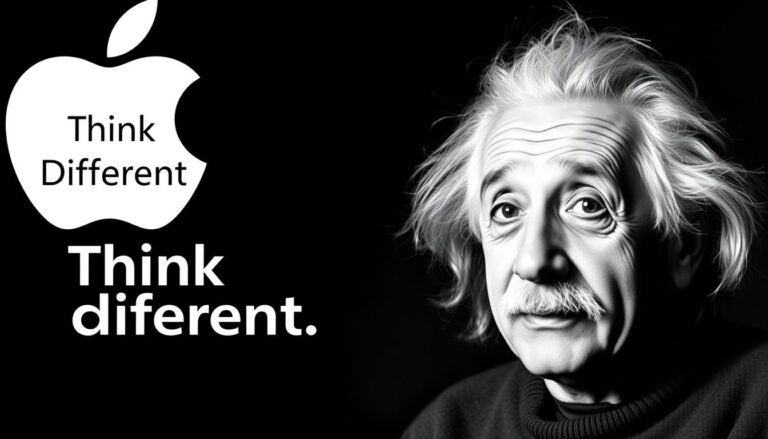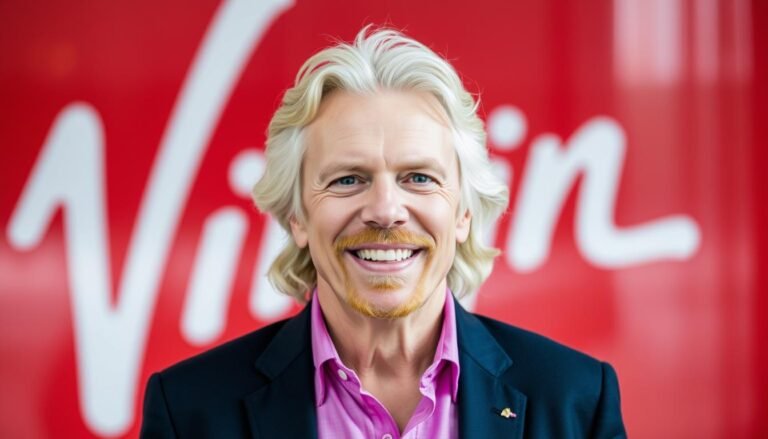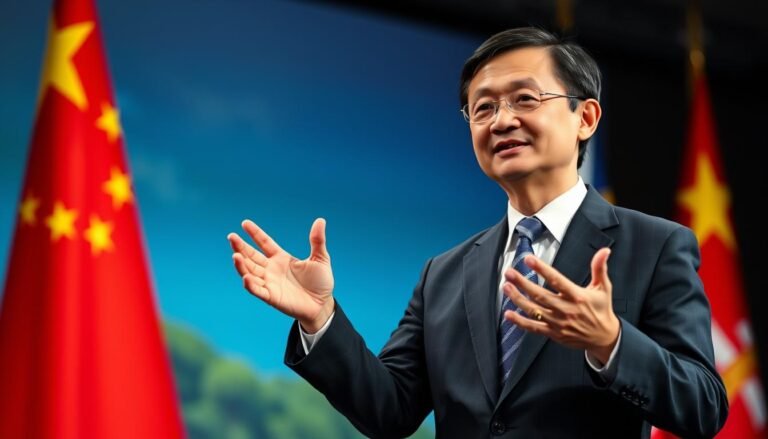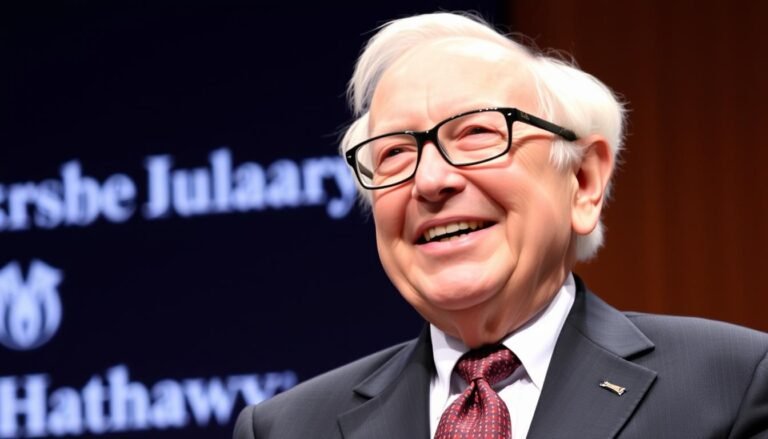Bill Gates: Bridging Software Innovation and Global Philanthropy
Few individuals have shaped the modern world as profoundly as Bill Gates. From revolutionizing personal computing to tackling humanity’s greatest challenges through philanthropy, Gates has redefined what it means to build a legacy of impact. His journey from a young programming enthusiast to one of history’s most influential figures illustrates how vision, determination, and strategic thinking can transform not just industries, but lives across the globe.
The Software Revolution
Bill Gates’ path to changing the world began in 1975 when, at just 19 years old, he dropped out of Harvard University to co-found Microsoft with his childhood friend Paul Allen. Their vision was revolutionary yet simple: a computer on every desk and in every home, all running Microsoft software. At a time when computers were massive, expensive machines accessible only to large organizations, this idea seemed almost fantastical.

The Birth of an Industry Giant
Gates’ first major breakthrough came when Microsoft developed an operating system called MS-DOS for IBM’s first personal computer. Rather than selling the software outright, Gates negotiated a licensing agreement that allowed Microsoft to retain ownership of the operating system and license it to other computer manufacturers. This strategic decision laid the foundation for Microsoft’s dominance in the emerging personal computer market.
“I believe that with the right tools, people can do amazing things.”
Windows and the Democratization of Computing
The introduction of Windows in 1985 marked a pivotal moment in computing history. With its graphical user interface, Windows made computers more accessible to everyday users who lacked technical expertise. Windows 95, released a decade later, became a cultural phenomenon, selling 7 million copies in its first five weeks and cementing Microsoft’s position as the dominant force in personal computing.

Antitrust Challenges and Business Evolution
Microsoft’s rapid growth and market dominance eventually attracted regulatory scrutiny. In 1998, the U.S. Department of Justice filed an antitrust lawsuit against Microsoft, alleging the company had engaged in anticompetitive practices to maintain its monopoly in the operating system market. The case resulted in a settlement that required Microsoft to share its application programming interfaces with third-party developers.
Despite these challenges, Microsoft continued to expand its product portfolio, developing productivity software like Microsoft Office that became standard tools in businesses worldwide. Under Gates’ leadership, Microsoft transformed from a small startup into one of the world’s most valuable companies, with products used by billions of people globally.
Explore the History of Windows
Discover how Microsoft Windows evolved from a simple graphical interface to the sophisticated operating system used by millions today.
Transition to Philanthropy
As the new millennium approached, Bill Gates began to shift his focus from software to solving global challenges. In 2000, he and his then-wife Melinda established the Bill & Melinda Gates Foundation, consolidating their previous charitable efforts into what would become the world’s largest private foundation.

The Foundation’s Mission and Structure
The Gates Foundation operates with a simple yet ambitious mission: to help all people lead healthy, productive lives. With an endowment of over $50 billion, the foundation focuses on three primary areas: global health, education, and poverty alleviation. Gates brought the same analytical thinking and results-oriented approach that made Microsoft successful to his philanthropic endeavors.
Global Health Initiatives
The foundation has committed billions to fighting infectious diseases like malaria, HIV/AIDS, and tuberculosis in developing countries. One of its most notable successes has been its work with the Global Polio Eradication Initiative, which has helped reduce polio cases by 99.9% worldwide since 1988.

Education and Poverty Reduction
In the United States, the foundation focuses on education reform, supporting initiatives to increase high school graduation rates and college readiness. Globally, it works to reduce extreme poverty through agricultural development, financial services for the poor, and water, sanitation, and hygiene programs.

COVID-19 Response and Pandemic Preparedness
When the COVID-19 pandemic struck in 2020, the Gates Foundation quickly mobilized resources, committing more than $1.75 billion to the global response. Beyond immediate relief, Gates has advocated for better pandemic preparedness, warning about the threat of global pandemics years before COVID-19 emerged. His 2015 TED Talk, “The next outbreak? We’re not ready,” proved eerily prescient.
Clean Energy and Climate Change
Recognizing climate change as one of humanity’s greatest challenges, Gates has invested heavily in clean energy research and development. In 2015, he launched Breakthrough Energy, a coalition of private investors committed to supporting clean energy innovation. His 2021 book, “How to Avoid a Climate Disaster,” outlines a comprehensive plan for reaching zero carbon emissions.
Explore the Gates Foundation’s Work
Learn more about how the Bill & Melinda Gates Foundation is working to solve some of the world’s most pressing challenges.
Criticisms and Controversies
Despite his philanthropic efforts, Bill Gates has faced criticism and controversy throughout his career. Understanding these criticisms provides a more complete picture of his complex legacy and the challenges inherent in wielding such significant influence.

Microsoft’s Business Practices
During Microsoft’s rise to dominance, the company faced accusations of anticompetitive behavior. Critics argued that Microsoft leveraged its operating system monopoly to disadvantage competitors and stifle innovation. The antitrust case brought by the U.S. Department of Justice in the late 1990s highlighted these concerns, with Gates’ combative deposition testimony becoming a focal point of the proceedings.
Philanthropy and Power Dynamics
Some critics question the outsized influence that private philanthropists like Gates have on global health and development policies. They argue that the foundation’s priorities can shape international agendas without the accountability mechanisms that govern public institutions. This “philanthrocapitalism” raises questions about democratic governance and the appropriate role of private wealth in addressing public challenges.
Supporters Say
- Gates brings much-needed resources to neglected global health issues
- The foundation’s data-driven approach improves effectiveness
- Private philanthropy can take risks that governments cannot
- Gates has encouraged other billionaires to donate through the Giving Pledge
Critics Say
- Too much influence concentrated in the hands of one individual
- Foundation priorities may not align with local needs
- Lack of democratic accountability in decision-making
- Potential conflicts of interest with investment portfolio
Gates’ Response to Criticism
Gates has generally responded to criticism by emphasizing the foundation’s commitment to transparency and results. He has acknowledged the legitimacy of concerns about accountability and has worked to increase collaboration with governments and other stakeholders. The foundation regularly publishes detailed reports on its activities and has established independent review mechanisms for its major initiatives.
“We’re funders. We don’t have some magic formula that makes us better than government. What we do have is the ability to take risks and the ability to invest in things that might not work.”

Legacy and Impact
Assessing Bill Gates’ legacy requires considering both his technological and philanthropic contributions. Few individuals have had such profound influence across multiple domains, and the full impact of his work continues to unfold.

Technological Legacy
Gates’ vision of a computer on every desk and in every home has largely been realized. Microsoft Windows and Office products remain ubiquitous tools used by billions of people worldwide. Beyond specific products, Gates helped establish the software industry as we know it today, pioneering business models and development practices that continue to influence technology companies.
Philanthropic Impact
Through the Gates Foundation, Bill Gates has redefined modern philanthropy. The foundation’s data-driven approach, focus on measurable outcomes, and willingness to take risks on innovative solutions have influenced how governments, nonprofits, and other philanthropists approach global challenges.
Expert Perspectives
Experts across various fields have weighed in on Gates’ contributions and their significance:
Technology Impact
“Gates fundamentally changed how we interact with technology. By making computing accessible to non-technical users, he democratized access to information and digital tools in ways that continue to shape our world.”
— Dr. Samantha Chen, Technology Historian
Business Innovation
“The software licensing model Gates pioneered created an entirely new industry. His business acumen transformed Microsoft from a small startup into a global powerhouse that defined an era of technology.”
— James Wilson, Business Analyst
Philanthropic Approach
“Gates brought a venture capitalist mindset to philanthropy, focusing on measurable outcomes and scalable solutions. This approach has influenced how we think about addressing complex global challenges.”
— Dr. Maria Rodriguez, Public Health Expert
Gates in His Own Words
Gates himself has reflected on his journey and what he hopes his legacy will be:
“I hope that in the future, people will look and say, ‘Wow, that made a huge difference.’ Whether it’s in innovation or education or health, I hope the work we’re doing will have changed the world in a very positive way.”

Read Bill Gates’ Latest Book
Explore Gates’ insights on climate change and his plan for reaching zero carbon emissions in “How to Avoid a Climate Disaster.”
Conclusion
Bill Gates’ journey from software entrepreneur to global philanthropist represents a remarkable evolution in how one individual can define success and impact. By leveraging his technological expertise, business acumen, and substantial resources, Gates has addressed challenges ranging from computer accessibility to global health crises.
What distinguishes Gates is not just the scale of his accomplishments but his willingness to reinvent himself and his mission. After achieving extraordinary success in business, he could have simply enjoyed his wealth. Instead, he chose to tackle some of humanity’s most pressing problems, applying the same analytical thinking and results-oriented approach that made Microsoft successful.
As Gates continues his philanthropic work, his legacy continues to evolve. The Gates Foundation’s accelerated timeline—planning to spend down its resources by 2045—reflects Gates’ urgency in addressing global challenges and his belief that concentrated, strategic investment can catalyze lasting change. Whether through technological innovation or philanthropic intervention, Bill Gates has demonstrated how vision, determination, and strategic thinking can transform not just industries, but lives across the globe.

Stay Updated on Bill Gates’ Work
Subscribe to Gates Notes to receive updates on Bill Gates’ latest thoughts, projects, and philanthropic initiatives.
Frequently Asked Questions About Bill Gates
When and where was Bill Gates born?
Bill Gates (William Henry Gates III) was born on October 28, 1955, in Seattle, Washington, USA.
Did Bill Gates graduate from college?
No, Bill Gates dropped out of Harvard University during his junior year in 1975 to focus on building Microsoft with Paul Allen. However, Harvard awarded him an honorary degree in 2007.
How much has Bill Gates donated to charity?
As of 2025, Bill Gates has donated more than billion to charitable causes, primarily through the Bill & Melinda Gates Foundation. He has pledged to donate 99% of his wealth during his lifetime or in his will.
What is Bill Gates’ net worth?
As of 2025, Bill Gates’ net worth is approximately 7 billion, making him one of the wealthiest individuals in the world, though his exact ranking fluctuates with market changes.
What is the Giving Pledge?
The Giving Pledge is an initiative started by Bill Gates and Warren Buffett in 2010 that encourages billionaires to commit to donating the majority of their wealth to philanthropic causes during their lifetime or in their will.
What books has Bill Gates written?
Bill Gates has authored several books, including “The Road Ahead” (1995), “Business @ the Speed of Thought” (1999), “How to Avoid a Climate Disaster” (2021), “How to Prevent the Next Pandemic” (2022), and “Source Code: My Beginnings” (2025).







